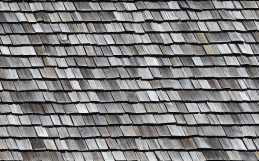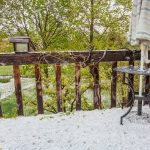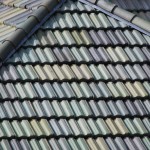If you are looking to cut your utility bill and decrease your home’s carbon footprint, you might be considering installing solar panels on your home’s roof. The energy coming from the sun is free and taking advantage of that is a big incentive for many people.
More and more, people are considering adding solar energy to their Clark County homes. Not only do they help with energy efficiency, but they may also help with the resale value of the home, even in the “rainy” Pacific Northwest. Advances in solar industry technology, federal and local rebates, and other reasons make roof solar panels very attractive.
But will installing solar panels on your roof damage it? Will it require more upkeep after they are installed or can they be added to any roofing material? Here, we’ll talk about some of the most important things to keep in mind when it comes to solar panels and your roof.
Will solar panels damage your roof?
If the solar panels are installed by professionals, they shouldn’t damage any part of your roof. Obviously, any roof penetrations need to be handled with care and in some cases may even void your roof warranty. When installed incorrectly, rooftop solar panels may do more harm than good.
You’ll also want to make sure your existing roof is in good enough condition to handle solar panel installation. Make sure you have a licensed roofing company like Warner Roofing inspect the roof and ensure its integrity. Even with proper installation, solar panels may not make sense if you’ll have to replace your existing roof soon.
How are the panels installed?
As we said before, installing solar panels involves drilling holes into your roof – never an ideal situation. These bolts must be drilled into the rafters (not just the decking) and anchor mounts that hold the panels in place. Proper sealants are also recommended to prevent any leaking.
They use a specific kind of bolt that is strong enough to keep the panels in place for many years. If the wrong bolt is used, the panels will not be held securely in place, which could cause roof problems. EIther with leakage that could lead to mold or dry rot as well as the panels shifting over time, causing more damage.
Once the panels are attached, the bolts are covered with flashing to make sure the roof is protected. The flashing is a key part of the installation process, as it is moisture resistant and allows the hole to be sealed so no moisture can get in. The flashing also helps move water away from the area, so you don’t need to worry about the panels building up with water.
Solar panels work on sloped and flat roofs and are used in residential, commercial, and industrial situations. They are an ideal way to take advantage of renewable energy and go a long way to helping keep your electric bill low. Just make sure you’re working with a professional solar installer.
Before you start your solar panel project, make sure your roof is inspected closely by our team of professionals at Warner Roofing. We will make sure there are no issues that need to be fixed before your panel installation. Contact us today for an appointment!







